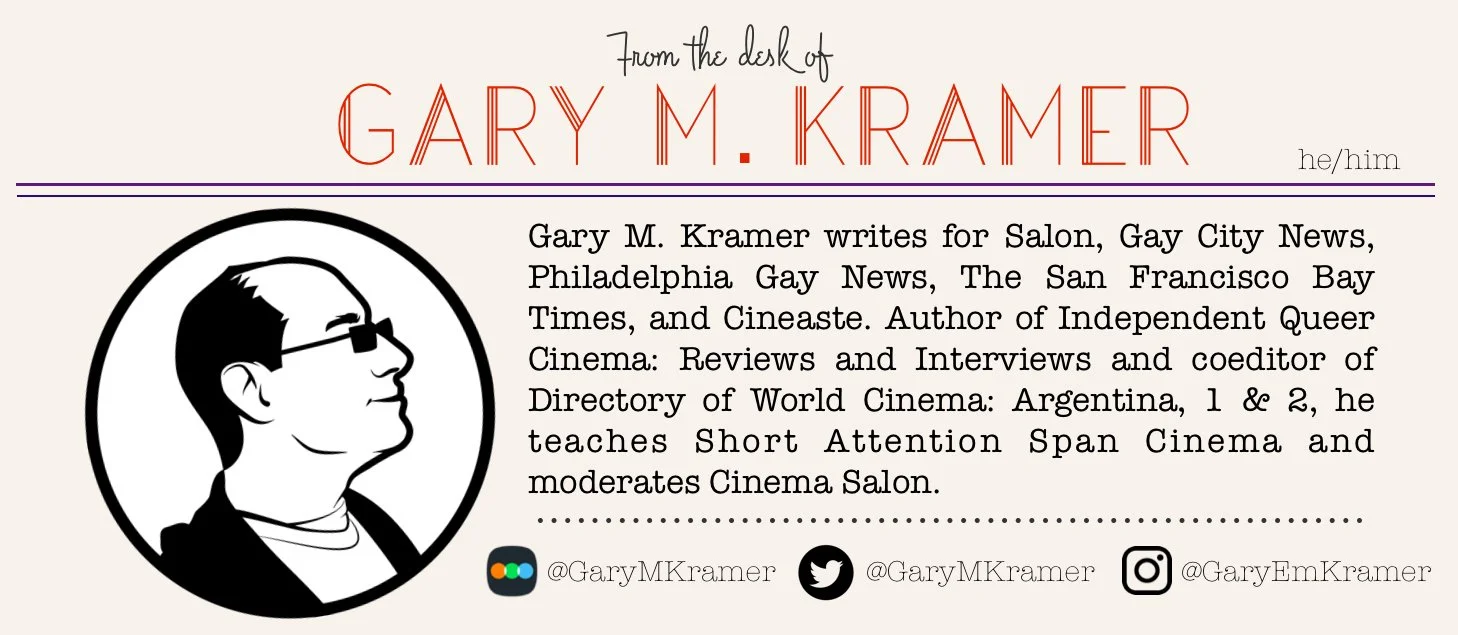This year's Live Action Oscar-nominated shorts offer stories from around the world
by Gary M. Kramer, Staff Writer
The annual showcase of Oscar-nominated short films is now available in theaters (with some of the shorts also available on streaming services). The Live Action category feels especially political this year with each film tackling a relevant subject. Some of the shorts are chillingly effective, while others are merely competent in their approach. Here is a rundown of the five nominees and each film’s chance of winning the Best Live Action Short Film Oscar.
A Lien is an intense and especially topical drama about Sophia (Victoria Ratermanis) and Oscar (William Martinez) arriving at his Green Card interview. The car ride to the appointment is chaotic, but things get worse after they arrive. ICE is arresting undocumented immigrants on site—an insidious practice—and Oscar’s name is called during his meeting. Writers/directors David and Sam Cutler-Kreutz (they are brothers) shoot their urgent short in claustrophobic closeup to emphasize Oscar and Sophia’s palpable despair as he and the couple’s 5-year-old daughter try to avoid deportation. Trump makes a brief appearance on a TV screen in this all-too-timely short. A Lien might get some traction with the Academy given the current attitudes about the immigrant crisis, which might just allow in to sneak in for a win.
Anuja immerses viewers in the life of its charming title character, played by Sajda Pathan, who in real life has lived on the streets and been a child laborer. (She is now living in a Day Care Center run by the Salaam Baalak Trust). Anuja is a 9-year-old who is working for Mr. Verma (Nagesh Bhonsie) in a sweatshop in New Delhi along with her older sister, Palak (Ananya Shanbhag). Anuja is gifted in math, and when Mr. Mishra (Gulshan Walia) asks her to take an entrance exam, which requires an entry feel, to get a scholarship to a boarding school, Anuja is skeptical. After Palak devises a scheme to raise the necessary money, Mr. Verma puts Anuja in a morally compromised position. Director Adam J. Graves lets Anuja unfold through a series of narratives, from a fable Palak shares with her sister, to a backstory on how Palak creates “something out of nothing,” that are each satisfying. However, the main storyline is a bit manipulative, and while the film (wisely) ends on an ambiguous note, the parts here feel greater than the whole. Voters may like the messages of female empowerment and education, but this film falls short of success.
I’m Not a Robot This amusing comic short opens with a witty episode where Lara (Ellen Parren) fails a Captcha test—repeatedly. “Is it possible you could be a robot?” she is asked. In trying to prove herself human, Lara makes an unsettling discovery. And when she tells her boyfriend, Daniël (Henry van Loon), his reaction is quite troubling. I’m Not a Robot is clever in how writer/director Victoria Warmerdam uses technology, space, and even a nifty tracking shot, to play up Lara’s fears, and the film moves nimbly as she experiences an unusual identity crisis and considers questions about life and death. And Parren’s performance as Lara is the key to the film’s success; watching her go through the five stages of grief as she learns the truth about her situation is incredibly relatable and human. This film is strong enough to win the Oscar, but it will likely have to settle for runner up.
The Man Who Could Not Remain Silent
This short, which won the Palme d’Or at Cannes last year, is the favorite to win this category, and it is easy to see why. Shot entirely within the confines of a train car, this cogent drama has Dragan (Goran Bogdan) waking up when his rail journey is interrupted by an unscheduled stop. Suddenly, armed forces are inspecting IDs and asking questions of passengers—much to the fear of Dragan’s compartment mate Milan (Silvio Mumelas), who does not have his papers. The Man Who Could Not Remain Silent is about standing up to authoritarian power, as another passenger, Tomo (Dragan Micanovic), does when he questions the Commander’s (Alexis Manenti) actions. This short is set in 1993 Bosnia and Herzegovina, but the parallels to the current situation in the U.S. are obvious, and that may be why this film will resonate most with the Academy.
The Last Ranger
The South African entry in the anthology series, When The World Stopped, is this earnest and well-meaning short about rhino poaching on a big game reserve. To its credit, The Last Ranger features beautiful cinematography and scenes of animals in the wild. However, this short is probably best geared for younger viewers as it features an adolescent girl, Litha (Liyabona Mroqoza), who accompanies Khuselwa (Avumiile Qongqo), a ranger, on a trip to see white rhinos only to encounter poachers—and, to her surprise and chagrin, Litha’s father (Makhaola Ndebele). The action scenes are manipulative and clumsily staged, and the important messages about conservation and the evils of poaching are delivered in a preachy, didactic manner. This film is a longshot to win, but as the weakest of the entries, it really should not have been nominated.
Support MovieJawn Staff
〰️
Support MovieJawn Staff 〰️
With the death of so much print media and meaningful journalism, it is important now more than ever to support the writers and outlets you love.
If you enjoyed this article, show your support by donating to our writer. All proceeds go directly to the writer. Recommended donation is $5.








